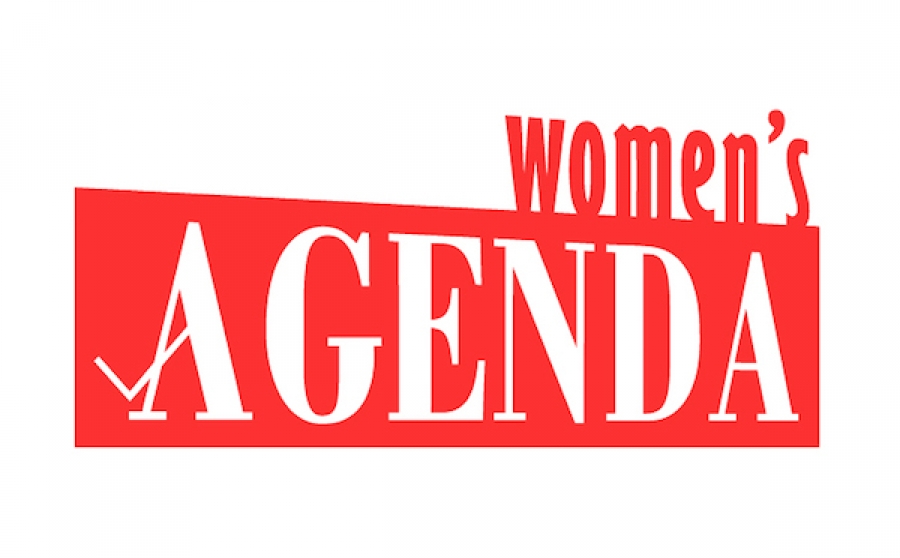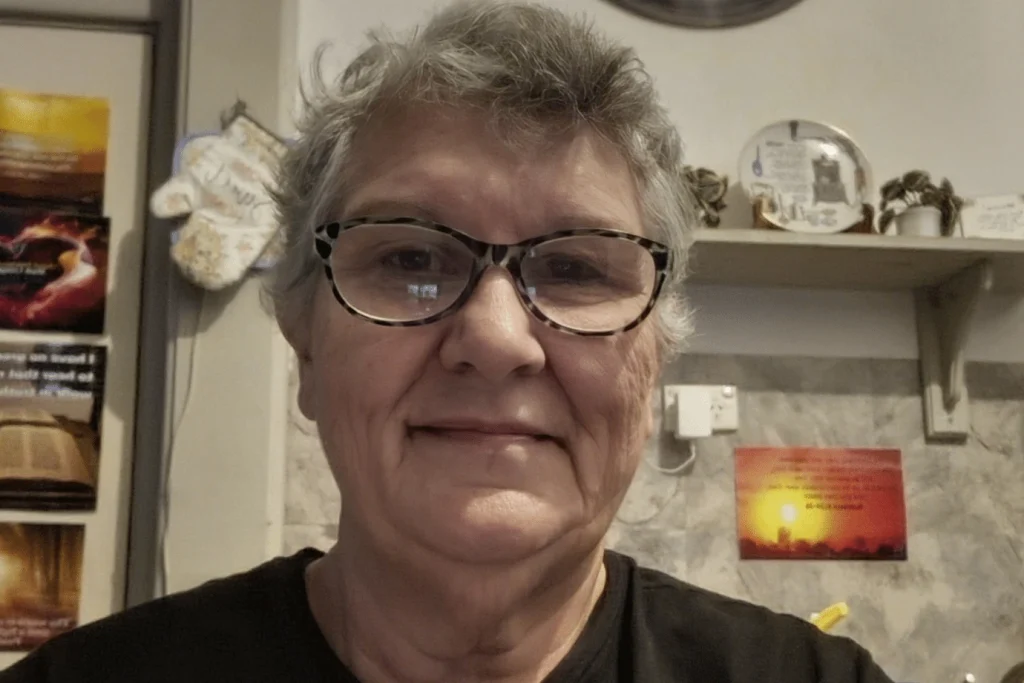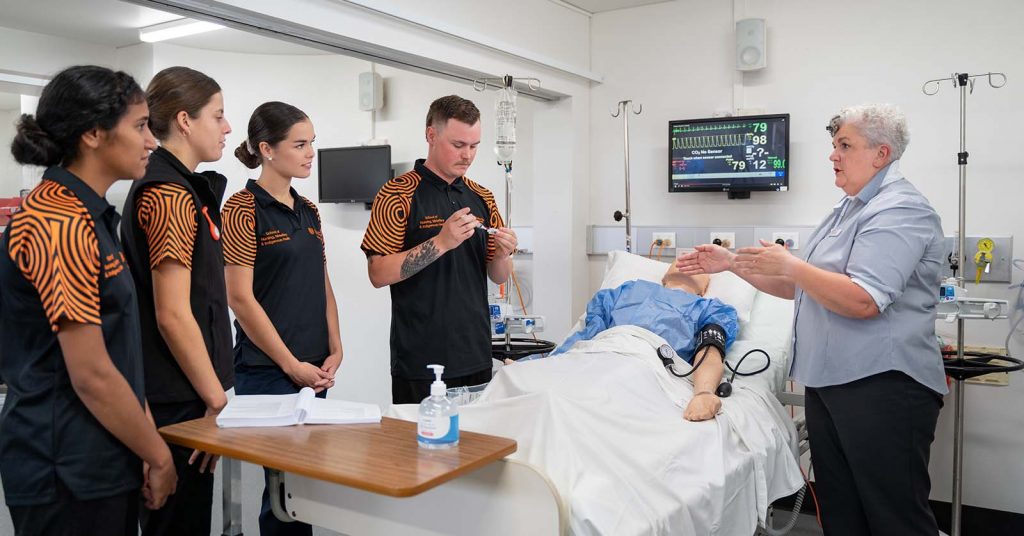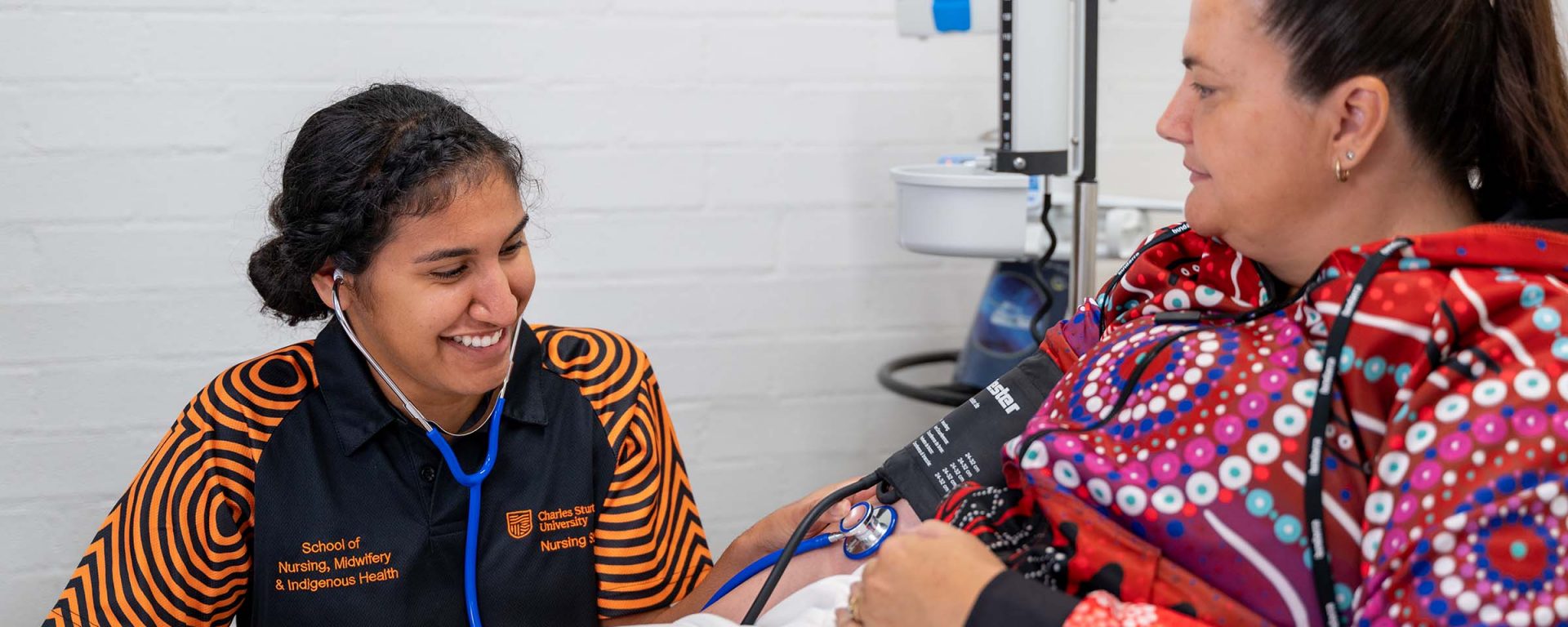Nurse Gillian Keed’s mother has been a source of inspiration to her for much of her life. “My mum always had these little sayings that made you think [like] ‘If you’re not going to say anything nice, don’t say nothing at all’ and ‘If you have anything to say, don’t be afraid to say it’.” Her mother Elizabeth Daley, also known as Betty, was also one of the last babies in her family to be born in Nanima: one of the country’s longest-running Aboriginal missions and a place that stands as a potent reminder of the history of Stolen Generations. Despite her hardships, Ms Daley went on to work in First Nations health and wellbeing at the first Aboriginal Medical Service in Australia.

This article was first published by Women’s Agenda.
The centre was founded by activists in the Sydney suburb of Redfern in 1971. It became so popular it’s now a federal government-funded multidisciplinary health practice. They offer a range of services, including medical, dental and mental health.
It’s also where Gilian’s fascination with nursing first began. Seeing nurses in action as they cared for patients sparked a deep curiosity in her from a young age.
“I always had a heart for nursing,” she said. “When I was young, I always wondered when they used to give tablets and give needles and I’d see how they do the blood pressure, I used to ask questions about what they were doing and how they done it.
“I love looking after people, especially the older fellas.”
Working in First Nations health and wellbeing

Gillian is the first registered enrolled nurse in her family. And her love of caring for people has seen her work across a number of spaces, including disability, health and juvenile justice where she supported children from dysfunctional families to keep them out of the prison system.
“We had a very sad upbringing. Our parents split up when me and [my sister] was babies.”
“Like our mother back in her days, she was in the Depression times… and she was a single mum and she passed us on to other family members when she come to a stage where she nearly had a breakdown and couldn’t handle just trying to survive with two little kids.
“Back then, you know, your grandparents took you in, your aunties took you in. But a lot of memories with them wasn’t good because you didn’t have your mum there and no one treats you the way that your mum treats you.
“And then when you get older, you know, you drop out of school. You follow after things that others follow after, you don’t do anything with your life.
“But one good thing is I was always encouraged to get a job. That’s one thing that I always did. I just wanted more in my life.”
This drive for a better life pushed Gillian to strive for more.
Following a dream
“I ended up running into a Christian man and I married him. He was a big encouragement for my life.”
Though they have separated, Gillian says her husband’s encouragement at the time to follow her dream of becoming a nurse really helped her finally take the leap to go to university.
The journey was challenging. She thought of giving up many times. But with the support of university staff and her loved ones, as well as her own grit, she got through it.
“I just didn’t understand the big words. So I used to get really, really angry with myself because I couldn’t understand what they were talking about. Their lectures just went so fast.”
“[But] I had a good relationship with the teachers. There was one [lecturer] Sara Morgan [and] she was very good. She’d seen how interested and how hard I worked and she more or less begged me to stay.
“She encouraged me to continue on with my studies.
“They ended up connecting with the nursing section in Dubbo and an Aboriginal registered nurse, Tracy Goodwin. They brought her in to help the Aboriginal students. It was really, really good.”
Having someone there to explain some of the complex terminology in Aboriginal English made a significant difference.
“If they’d done it like that in the first place, I think I’d have probably got distinctions.”
Facing challenges head on
As much as Gillian has loved nursing, it has come with many challenges.
“Like in life in general, being a nurse, there’s a lot of challenges. Being Aboriginal is one of them. The Aboriginal people have been mistreated most of their life, like the people my age, so even today they still struggle.
“You’re going to be fighting for your rights all your life because you’ve got a lot of racism [and] you’ll never understand it unless you’re Aboriginal yourself. People will treat me in one way like themselves but when they realise that you’re Aboriginal you can see that things change.”
Consequently, Gillian is deeply driven by a sense of social justice for everyone she works with, including non-Indigenous people.
She says there are times when it’s really important to stand your ground and step up for other people’s welfare.
With this fighting spirit, the nurse has garnered a lot of respect with everyone from her children and extended relatives to other Aboriginal people in the community, all reaching out to her for advice whenever they have a health issue.
“Soon as something’s wrong… they straight away run to me. I’m happy. I mean I love my job, I love it very much.”

Seeing change happen in First Nations health and wellbeing
Through her work, Gillian wants Australia to recognise how much progress is being made with First Nations health and wellbeing and access to services.
“Things are changing. All we can do is pray and hope that it does happen.
“I don’t think we’re going to fix everything. Rome wasn’t built in a day. I think it’ll take a long journey but I think healthcare has changed since years ago. There’s some things I don’t agree with that they say in health, like when they say our lifespan is less than the white man’s lifespan.
“I think that that needs to change a bit because there’s a lot of older Aboriginals that are living longer than what they used to. Years ago when they had that saying, Aboriginals’ life age was around 50 years old. If you reach 50 years old, that was awesome! Well, there are a lot of Aboriginal people today who are living in the eighties and nineties too. You know, don’t keep that curse on ‘em.”
“I got my sister-in-law, she’s 72 and she’s in health and she’s still working, she’s as fit as they come.
“Everybody gets sick and everybody ages.
“For Aboriginals, there’s a lot of healthcare that’s meeting their needs today, where years ago they didn’t.”
Passing on knowledge
Gillian is proud that her children are part of the change that’s happening around this. Most of them are following in her footsteps to study at university and pursue professional careers in health.
And as her mother once passed on life lessons to her, she shares some of the advice with her six kids.
“Keep going. I always tell my kids, ‘If you want to have nice things for yourself, you need to get a job and earn money so you can buy the nice things you want.’ They’re following a bit after their mum.”
Play your part helping people
Check out Charles Sturt’s medicine and health degrees.



You must be logged in to post a comment.